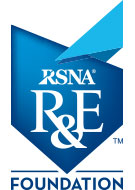Your Donations in Action: Jennifer Keiko Matsui, MD, PhD
Investigating Prognostic Factors Associated with Long-Term Outcomes of High-Grade Gliomas in Children and Adolescents


A 2021 update to the World Health Organization (WHO) classifications of central nervous system (CNS) tumors led to the identification of new entities and subtypes. Pediatric-type diffuse gliomas are now separated from adult-type diffuse gliomas due to their distinct molecular differences.
Treatment of high-grade gliomas in pediatric and adolescent patients is complex and requires a multidisciplinary approach that typically involves radiation, chemotherapy and surgery, with gross total resection (GTR) being the primary goal.
For her 2023 RSNA Research Medical Student Grant project, “Pediatric, Adolescent, and Young Adult Patients with WHO Grade 4 Gliomas: A Multi-Institutional Study Evaluating Outcomes and Patterns of Failure," Jennifer Keiko Matsui, MD, PhD, a radiation oncology resident at Stanford University in California, and colleagues sought to identify variables that can accurately predict patient outcomes and inform treatment decisions in patients with Grade 4 gliomas.
The researchers retrospectively analyzed the medical records of 97 patients under 30 years old who were diagnosed with diffuse midline glioma or glioblastoma, a specific type of Grade 4 glioma.

All patients received surgery and radiotherapy, with an average progression-free survival of 20.9 months and an overall survival of 79.4 months. The researchers identified an association between GTR and improved progression-free survival for patients aged 15 years and above.
Female patients with diffuse midline glioma were linked to a worse overall survival. These results provide insight into the prognostic factors that are most predictive of long-term outcomes.
“Our findings suggest that adolescent and young adult patients generally have better progression-free survival and overall survival compared to pediatric patients, highlighting the importance of age in predicting outcomes,” Dr. Matsui said. “Additionally, the study identifies diffuse midline glioma with H3 K27-altered histology as having worse survival outcomes than hemispheric glioblastoma, emphasizing the need for tailored treatment approaches for different tumor types.”
Funding from the R&E Foundation grant provided Dr. Matsui with crucial financial support, enabling collaboration with other institutions and a pathway into a new field of research.
“The R&E Foundation grant played a pivotal role in helping me transition from my background in organic chemistry, where my experience was largely in basic science, to developing clinical research skills in radiation oncology,” Dr. Matsui said.
For More Information
Learn more about R&E Foundation funding opportunities.
Read our previous Your Donations in Action story.